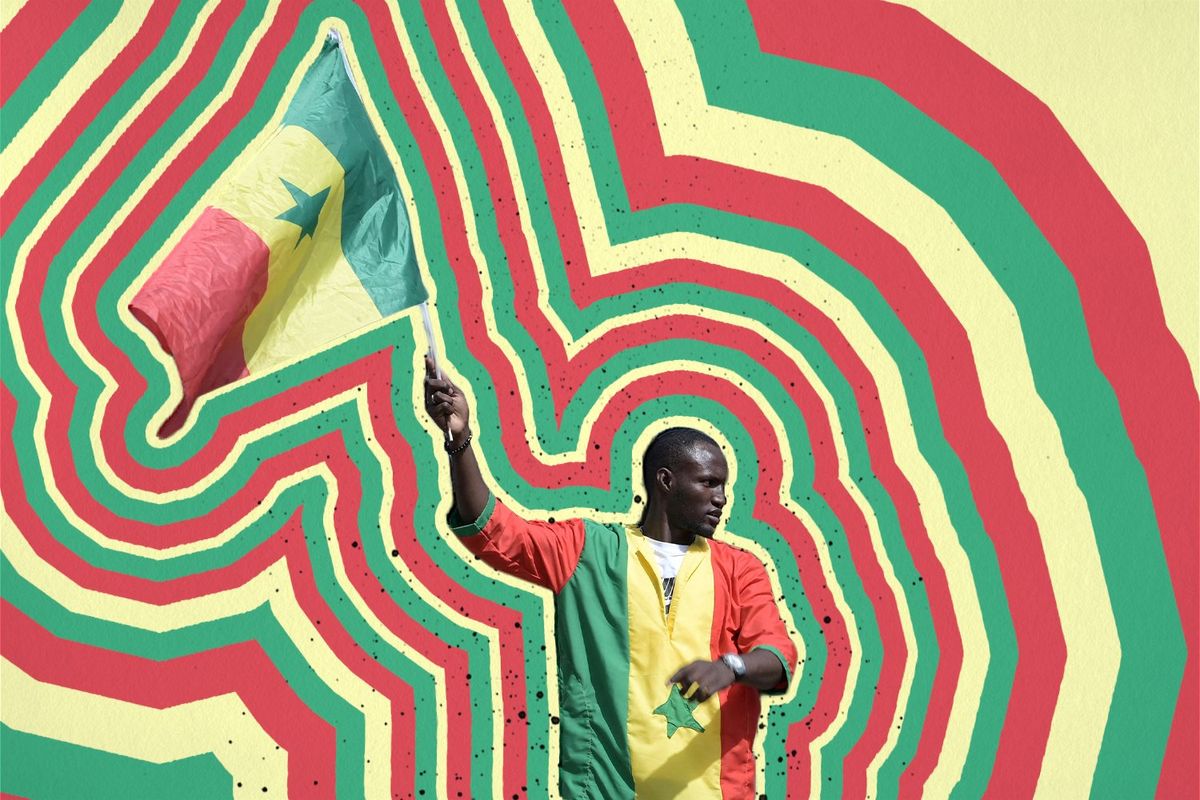What’s at Stake During this Weekend’s Elections in Senegal
From realigning its democracy to improving its economic realities, the people of Senegal have a lot riding on Sunday’s election.

Voters are hoping to usher in a new government that better respects citizens’ rights and will improve the economy.
Across its six-plus decades of independence, the Senegalese public has shown a strong level of outspokenness, consistently protesting against unfavorable policies and government indiscretion: from the 1994 protests against the economic policy to devalue the country’s currency, to the 2011 riots against constitutional changes proposed by former president Abdoulaye Wade in his run for a third term, and the unrests in 2021 and 2023 stemming from the arrest and imprisonment of opposition figure Ousmane Sonko.
In early February, as soon as President Macky Sall announced a postponement of the February 25 presidential election, the streets of the capital city Dakar and several other regions in the country were filled with citizens demanding that their constitutional rights be respected and upheld.
Sall’s election postponement announcement was ratified by parliament, which set a new date far away in December. Many, especially opposition leaders and civil groups, considered the move a constitutional coup, citing Sall’s alleged pattern of stretching the limits of his powers across the two terms of his presidency.
Amidst the ensuing protests in the days and weeks that followed, Senegal’s Constitutional Council deemed the drastic adjustment of the election date as illegal, saying that it was well beyond the end of the outgoing president’s terms. Beyond citizens’ dissent, there was now institutional will and it helped compel Sall to declare his readiness to exit office as scheduled on April 2.
Going into the elections, now fixed for Sunday, March 24, Senegalese voters have a record 19 candidates to choose from. Inevitably, there are leading candidates with higher followership, including Amadou Ba of the ruling coalition party, multiple-time presidency hopeful Idrissa Seck and the Sonko-backed Bassirou Diomaye Faye. There’s also Anta Babacar Ngom, a 40-year-old entrepreneur who is the only female candidate in polls, making her the first since 2012. While she stands little to no chance at winning, reports say her ambition is inspiring hope among women and young people.
To avoid a second-round runoff, a candidate must secure at least 50 percent of the votes to emerge as president.
For a country that has witnessed two peaceful transfers of power since 2000, including Sall’s takeover from Wade after the latter lost handily in a runoff, the newly elected president is expected to take office seamlessly despite the delays. With a shortened campaign period, candidates are presenting their manifesto in summary terms, even though many citizens view this election as a critical event that needs to spark important reforms for the West African country.
“So much pain that the [Sall] government did to the population. Everything is expensive in Senegal, there is no security, so many murders, the arrogance, the dictatorship…. No hope for the youth, our resources stolen,” Senegalese voter Amadou Alpharecently told OkayAfrica.
Amidst the need for a government that respects the people’s dignity and rights, a chief concern is the economy. Senegal, like many countries in West Africa, is dealing with a cost of living crisis, brought on by the aftereffects of the COVID-19 pandemic, the Russia-Ukraine war, and the appreciation of the dollar against several African currencies. Also, according to the World Bank, over 36 percent of the Senegalese population lives in poverty, worsened by terrible unemployment rates amongst its youth demographic, which makes up over 60 percent of the population.
Job creation has been a key talking point for many leading candidates, with the expectation that more employed young people will boost the economy and also reduce migration through illegal channels. Emigration to Europe through the dangerous Atlantic route has reached unprecedented levels in recent years, and those leaving are mainly young people who see a bleak future if they remain in the country. If change accompanies this year’s election, perhaps a wave of reverse migration could be on the cards.
Additionally, oil and gas production will resume in Senegal later this year, and while it is expected to improve the country’s revenues, there are fears it might be mismanaged and hoarded by a select few, as opposed to benefitting the wider society. While Ba is running with the slogan, “Prosperity Shared,” Faye has promised to review oil and gas contracts to maximize revenue usage.
From realigning the country’s democracy to boosting its economic prospects, a lot is clearly at stake for the people of Senegal as they slip their ballot papers into the boxes on Sunday.
- An End to "Injustice and Corruption" - The Hopes and Fears of Voters Ahead of Elections in Senegal ›
- Senegal’s Postponed Presidential Election Now Has a Date ›
- Senegal’s President Macky Sall Says He’ll Exit Office When his Term Ends, but Election Date Remains Uncertain ›
- Voters in Senegal Remain Determined to Stop the Postponement of Presidential Elections ›
- How Bassirou Diomaye Faye went from Detention to President-Elect at 44 - Okayplayer ›
- Bassirou Diomaye Faye Sworn in as Senegal’s Youngest President Ever - Okayplayer ›

